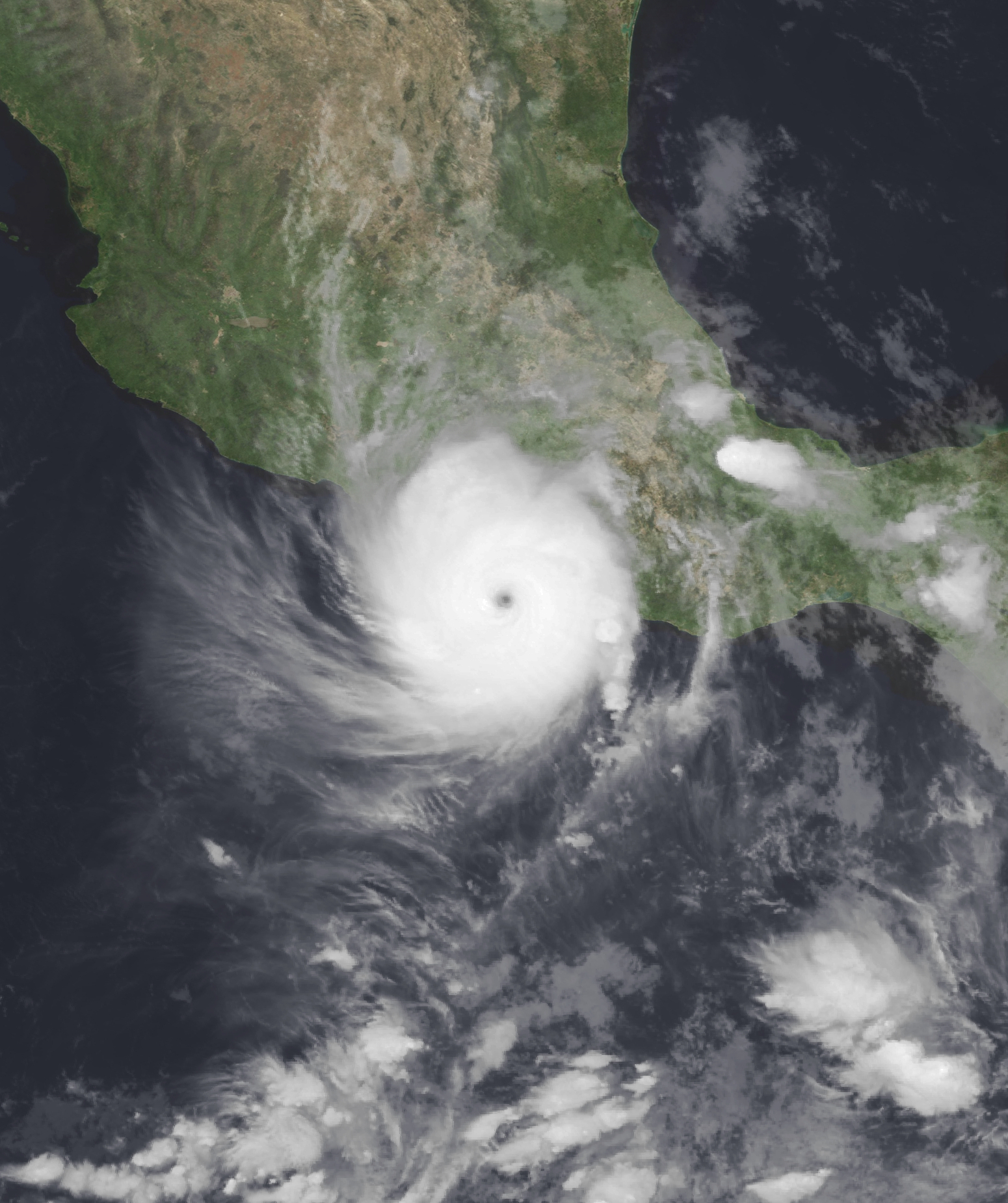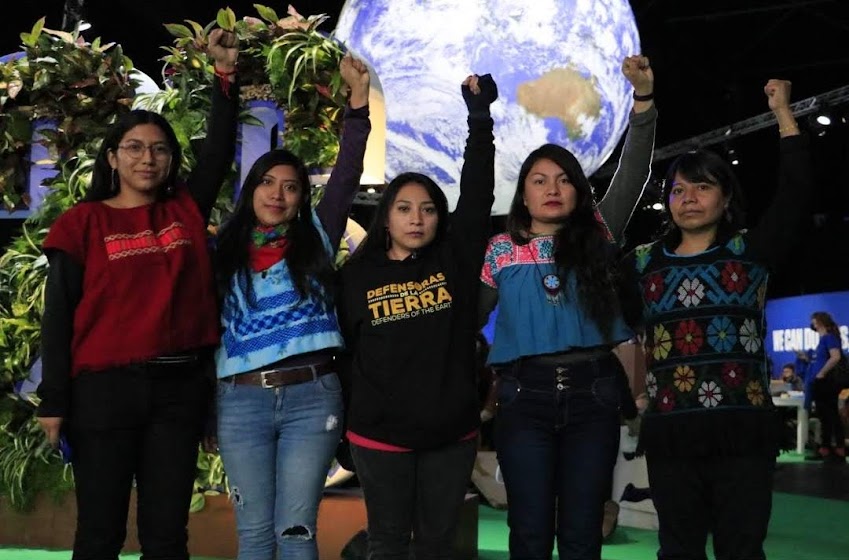
(3. August 2022, Progressive International).- Poonal dokumentiert eine Erklärung Dutzender Wirtschafts- und Sozialwissenschaftler*innen über den Entwurf für eine neue Verfassung, über den am 4. September in Chile abgestimmt wird. Die Erklärung wurde von der Progressiven Internationalen koordiniert und erscheint hier in deutscher Übersetzung (englische Originalversion siehe unten):
„Wir, Wirtschafts- und Sozialwissenschaftler*innen aus der ganzen Welt, befürworten die Arbeit des chilenischen Verfassungskonvents und das visionäre Dokument, das dieser zur Sicherung von nachhaltigem Wachstum und gesellschaftlichem Wohlstand für Chile ausgearbeitet hat.
Wir sind der Meinung, dass die neue Verfassung einen neuen globalen Standard setzt und Antworten gibt auf Herausforderungen der Klimakrise, der wirtschaftlichen Unsicherheit und der nachhaltigen Entwicklung. Die wirtschaftlich relevanten Aspekte der Verfassung stehen für einen schrittweisen, aber substanziellen Fortschritt für die chilenische Bevölkerung.
Die der Verfassung eigene Haltung in Geschlechterfragen eröffnet eine neue Dimension wirtschaftlicher Entwicklung. Zum ersten Mal erkennt eine Verfassung die Sorgearbeit, die soziale Reproduktion und die Gesundheit von Frauen als grundlegend für wirtschaftliche Zukunftsaussichten an.
Inspirierend ist auch das Konzept der allgemeinen Daseinsvorsorge und der sozialen Absicherung. Mit dem Aufbau gesellschaftlicher Versorgungssysteme für Bildung, Gesundheit und soziale Absicherung zieht Chile erfolgreich Lehren aus der jüngsten Geschichte. Diese hat gezeigt, wie wichtig Systeme der Daseinsvorsorge sowohl für die kurzfristige wirtschaftliche Widerstandsfähigkeit als auch für das langfristige Wirtschaftswachstum sind.
Die steuerpolitischen Bestimmungen der Verfassung versprechen, die wirtschaftliche Ungleichheit in Chile – die zu den höchsten in der OECD gehört – zu bekämpfen. Gleichzeitig sollen sie die staatlichen Einnahmen auf OECD-Standard bringen, die Abhängigkeit von Einnahmen aus der Ausbeutung von Rohstoffen verringern und zu einer nachhaltigen staatlichen Finanzpolitik beitragen.
Die arbeitsrechtlichen Aspekte stellen eine wichtige und demokratische Antwort auf Herausforderungen unserer Zeit dar. Durch die Verankerung des Rechts auf Arbeit und kollektives Agieren – also gewerkschaftliche Organisierung – zielt die Verfassung darauf ab, die Krise der Prekarität zu überwinden, von der Volkswirtschaften in aller Welt betroffen sind.
Schließlich setzt das vorgeschlagene Konzept für das Zentralbankwesen einen neuen globalen Maßstab. Durch die Verankerung eines Mandats, das finanzielle Stabilität, Beschäftigungsschutz und Umweltschutz berücksichtigt, schafft die Verfassung einen verantwortungsvollen, den Herausforderungen des 21. Jahrhunderts angemessenen Rahmen für das Zentralbankwesen.
Insgesamt sind wir der Meinung, dass die Verfassung einen Rechtsrahmen schafft, der Chile erfolgreich auf ein neues Jahrhundert des gerechten Wachstums vorbereiten wird. Dazu gehören Bestimmungen, die Investitionen anziehen, die finanzielle Stabilität schützen und die Entwicklung aller Chilen*innen befördern. Die Welt hat viel zu lernen von der vorbildlichen Arbeit des Konvents und dem visionären Produkt, über das Chile im September in einem Referendum abstimmen wird.“
Unterzeichner*innen:
Mariana Mazzucato, Professor in the Economics of Innovation and Public Value at UCL, Founding Director of the Institute for Innovation and Public Purpose and Chair of the World Health Organization’s Council on the Economics of Health For All.
Jayati Ghosh, Professor of Economics at the University of Massachusetts Amherst, former Chairperson of the Centre for Economic Studies and Planning at the Jawaharlal Nehru University, member of the UN Advisory Board on Economic and Social Affairs.
Isabel Ortiz, former Director at the United Nations ‘ ILO and UNICEF, currently Director Global Social Justice, Initiative for Policy Dialogue, USA.
Ha-Joon Chang, Research Associate with the Department of Economics at SOAS London, former Reader in the Faculty of Economics and Director of the Centre of Development Studies at the University of Cambridge
Thomas Piketty, Professor at EHESS and at the Paris School of Economics; Co-director, World Inequality Lab & World Inequality Database.
Philip Alston, Professor, NYU Law School, Former UN Special Rapporteur and Chair of UN Committee on Economic, Social & Cultural Rights.
Jomo Kwame Sundaram, Visiting Senior Fellow at Khazanah Research Institute, Visiting Fellow at the Initiative for Policy Dialogue, Columbia University, and Adjunct Professor at the International Islamic University in Malaysia.
Katharina Pistor, Edwin B. Parker Professor of Comparative Law, Director Center on Global Legal Transformation, Member of the Committee on Global Thought at Columbia University.
Gabriel Zucman, Associate Professor of public policy and economics at the University of California, Berkeley‘s Goldman School of Public Policy.
Jean Drèze, Honorary Professor Delhi School of Economics, Visiting professor at the Department of Economics, Ranchi University, member of Economic Advisory Council to Chief Minister of Tamil Nadu.
Guy Standing, Professorial Research Associate at SOAS University of London.
Ellora Derenoncourt, Assistant Professor of Economics at Princeton University and a member of the Industrial Relations Section of Princeton Economics.
James K. Galbraith, Lloyd M. Bentsen Jr. Chair in Government/Business Relations at the Lyndon B. Johnson School of Public Affairs, Professor in Government at The University of Texas at Austin, former executive director of the Joint Economic Committee of the United States Congress.
Richard Kozul-Wright, Director of the Globalisation and Development Strategies Division in United Nations Conference on Trade and Development (UNCTAD).
Ann Pettifor, Director, Policy Research in Macroeconomics (PRIME).
Maximilian Kasy, Professor of Economics at the University of Oxford.
Daniela Gabor, Associate Professor in Economics at the University of the West of England, Bristol.
Dean Baker, Senior Economist, Center for Economic and Policy Research.
Prabhat Patnaik, Professor Emeritus, Jawaharlal Nehru University.
Oscar Ugarteche, Senior Researcher at the Economic Research Institute of the National Autonomous University of Mexico.
Kevin Gallagher, Professor of Global Development Policy at Boston University.
Carolina Alves, Research Fellow, Girton College, University of Cambridge.
Juan Pablo Bohoslavsky, Researcher, CONICET (National Scientific and Technical Research Council – Argentina). Former United Nations Independent Expert on Debt and Human Rights.
Yilmaz Ayküz, Former Director of the Globalisation and Development Strategies Division in United Nations Conference on Trade and Development (UNCTAD); and former Chief Economist, South Centre.
Benjamin Braun, Senior Researcher, Max Planck Institute for the Study of Societies.
Gilad Isaacs, Director, Institute for Economic Justice, Economist at Wits University,
Bodo Ellmers, Director, Financing for Sustainable Development Program, Global Policy Forum.
Mario Seccareccia, Professor Emeritus of Economics, University of Ottawa, and Editor of International Journal of Political Economy.
Louis-Philippe Rochon, Full Professor of Economics, Laurentian University.
Gerald Epstein, Professor of Economics, University of Massachusetts Amherst.
Kristian Stokke, Professor of Human Geography, University of Oslo.
Marlese von Broembse, Director, Law Programme Women in Informal Employment: Globalizing and Organizing (WIEGO).
Alicia Girón, Coordinator of the University Program of Asian and African Studies (PUEAA) since May 2017 and researcher at the Economic Research Institute (IIEc), National Autonomous University of Mexico.
John Langmore, Professorial Fellow of Political Science, University of Melbourne.
Azita Berar Awad, former Senior Director at ILO, Chair at United Nations Research Institute for Social Development (UNRISD).
Anis Chowdhury, Adjunct Professor, Western Sydney University.
Andrés Chiriboga-Tejada, Research and teaching fellow in Economic Sociology at SciencesPo Paris.
Fred Moseley, Emeritus Professor, Mount Holyoke College.
Bruno Bonizzi, Senior Lecturer in Finance at University of Hertfordshire.
Devika Dutt, Lecturer in Development Economics, King’s College, London.
Diane Elso, Emeritus Professor, University of Essex, UK.
Neil Coleman, Co-Founder and Senior Policy Specialist Institute for Economic Justice, South Africa.
Özlem Onaran, Professor of Economics at the University of Greenwich. She is the director of the Greenwich Political Economy Research Centre and Co-Director of the Institute of Political Economy, Governance, Finance and
Accountability.
Die Erklärung im englischen Original:

„We, economists and social scientists from around the world, commend the Chilean constitutional convention and the visionary document it has produced to secure sustainable growth and shared prosperity for Chile.
We believe that the new constitution sets a new global standard in its response to crises of climate change, economic insecurity, and sustainable development. The economic provisions of the Constitution would represent gradual but substantial advances for the people of Chile.
The approach to gender in the constitution marks a major step forward in the economic model of development. For the first time, a constitution recognizes care work, social reproduction, and women’s health as fundamental to the prospects of the economy.
The approach to public services and social security is another source of inspiration. By establishing new institutions for the provision of universal public services like education, health and social security, Chile successfully applies the lessons of recent history that show the importance of these services for both short-term economic resilience and long-term economic growth.
The constitution’s tax policy mandates promise to tackle Chile’s economic inequality — among the highest in the OECD — while upgrading the country’s revenue to OECD standards, reducing dependency on extractive rents and contributing to sustainable public finances.
The approach to work represents an important and democratic response to our times. By enshrining rights to work and collective action, the constitution aims to redress the crisis of precarity that afflicts economies around the world.
Finally, the approach to central banking sets a new global benchmark. By enshrining a mandate that takes account of financial stability, employment protection and environmental care, the constitution establishes a responsible framework for central banking that is fit for the 21st century.
Taken together, we believe that the constitution creates a legal framework that will succeed to prepare Chile for a new century of equitable growth, with provisions to attract investment, protect financial stability, and promote development for all Chileans. The world has much to learn from the exemplary process of the convention and the visionary product on which Chile will vote in its September plebiscite.“
Signed,
Mariana Mazzucato, Professor in the Economics of Innovation and Public Value at UCL, Founding Director of the Institute for Innovation and Public Purpose and Chair of the World Health Organization’s Council on the Economics of Health For All.
Jayati Ghosh, Professor of Economics at the University of Massachusetts Amherst, former Chairperson of the Centre for Economic Studies and Planning at the Jawaharlal Nehru University, member of the UN Advisory Board on Economic and Social Affairs.
Isabel Ortiz, former Director at the United Nations ‘ ILO and UNICEF, currently Director Global Social Justice, Initiative for Policy Dialogue, USA.
Ha-Joon Chang, Research Associate with the Department of Economics at SOAS London, former Reader in the Faculty of Economics and Director of the Centre of Development Studies at the University of Cambridge
Thomas Piketty, Professor at EHESS and at the Paris School of Economics; Co-director, World Inequality Lab & World Inequality Database.
Philip Alston, Professor, NYU Law School, Former UN Special Rapporteur and Chair of UN Committee on Economic, Social & Cultural Rights.
Jomo Kwame Sundaram, Visiting Senior Fellow at Khazanah Research Institute, Visiting Fellow at the Initiative for Policy Dialogue, Columbia University, and Adjunct Professor at the International Islamic University in Malaysia.
Katharina Pistor, Edwin B. Parker Professor of Comparative Law, Director Center on Global Legal Transformation, Member of the Committee on Global Thought at Columbia University.
Gabriel Zucman, Associate Professor of public policy and economics at the University of California, Berkeley‘s Goldman School of Public Policy.
Jean Drèze, Honorary Professor Delhi School of Economics, Visiting professor at the Department of Economics, Ranchi University, member of Economic Advisory Council to Chief Minister of Tamil Nadu.
Guy Standing, Professorial Research Associate at SOAS University of London.
Ellora Derenoncourt, Assistant Professor of Economics at Princeton University and a member of the Industrial Relations Section of Princeton Economics.
James K. Galbraith, Lloyd M. Bentsen Jr. Chair in Government/Business Relations at the Lyndon B. Johnson School of Public Affairs, Professor in Government at The University of Texas at Austin, former executive director of the Joint Economic Committee of the United States Congress.
Richard Kozul-Wright, Director of the Globalisation and Development Strategies Division in United Nations Conference on Trade and Development (UNCTAD).
Ann Pettifor, Director, Policy Research in Macroeconomics (PRIME).
Maximilian Kasy, Professor of Economics at the University of Oxford.
Daniela Gabor, Associate Professor in Economics at the University of the West of England, Bristol.
Dean Baker, Senior Economist, Center for Economic and Policy Research.
Prabhat Patnaik, Professor Emeritus, Jawaharlal Nehru University.
Oscar Ugarteche, Senior Researcher at the Economic Research Institute of the National Autonomous University of Mexico.
Kevin Gallagher, Professor of Global Development Policy at Boston University.
Carolina Alves, Research Fellow, Girton College, University of Cambridge.
Juan Pablo Bohoslavsky, Researcher, CONICET (National Scientific and Technical Research Council – Argentina). Former United Nations Independent Expert on Debt and Human Rights.
Yilmaz Ayküz, Former Director of the Globalisation and Development Strategies Division in United Nations Conference on Trade and Development (UNCTAD); and former Chief Economist, South Centre.
Benjamin Braun, Senior Researcher, Max Planck Institute for the Study of Societies.
Gilad Isaacs, Director, Institute for Economic Justice, Economist at Wits University,
Bodo Ellmers, Director, Financing for Sustainable Development Program, Global Policy Forum.
Mario Seccareccia, Professor Emeritus of Economics, University of Ottawa, and Editor of International Journal of Political Economy.
Louis-Philippe Rochon, Full Professor of Economics, Laurentian University.
Gerald Epstein, Professor of Economics, University of Massachusetts Amherst.
Kristian Stokke, Professor of Human Geography, University of Oslo.
Marlese von Broembse, Director, Law Programme Women in Informal Employment: Globalizing and Organizing (WIEGO).
Alicia Girón, Coordinator of the University Program of Asian and African Studies (PUEAA) since May 2017 and researcher at the Economic Research Institute (IIEc), National Autonomous University of Mexico.
John Langmore, Professorial Fellow of Political Science, University of Melbourne.
Azita Berar Awad, former Senior Director at ILO, Chair at United Nations Research Institute for Social Development (UNRISD).
Anis Chowdhury, Adjunct Professor, Western Sydney University.
Andrés Chiriboga-Tejada, Research and teaching fellow in Economic Sociology at SciencesPo Paris.
Fred Moseley, Emeritus Professor, Mount Holyoke College.
Bruno Bonizzi, Senior Lecturer in Finance at University of Hertfordshire.
Devika Dutt, Lecturer in Development Economics, King’s College, London.
Diane Elso, Emeritus Professor, University of Essex, UK.
Neil Coleman, Co-Founder and Senior Policy Specialist Institute for Economic Justice, South Africa.
Özlem Onaran, Professor of Economics at the University of Greenwich. She is the director of the Greenwich Political Economy Research Centre and Co-Director of the Institute of Political Economy, Governance, Finance and
Accountability.
![]() Wir dokumentieren: „Die Welt hat viel von Chile zu lernen“ von Nachrichtenpool Lateinamerika ist lizenziert unter Creative Commons Namensnennung-Weitergabe unter gleichen Bedingungen 4.0 international.
Wir dokumentieren: „Die Welt hat viel von Chile zu lernen“ von Nachrichtenpool Lateinamerika ist lizenziert unter Creative Commons Namensnennung-Weitergabe unter gleichen Bedingungen 4.0 international.


Schreibe einen Kommentar